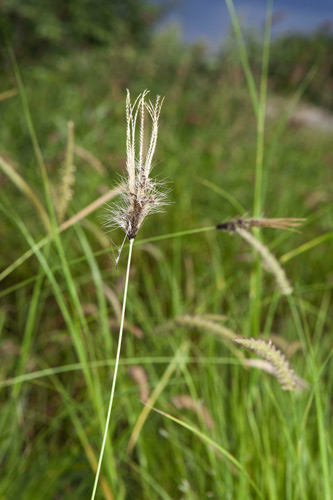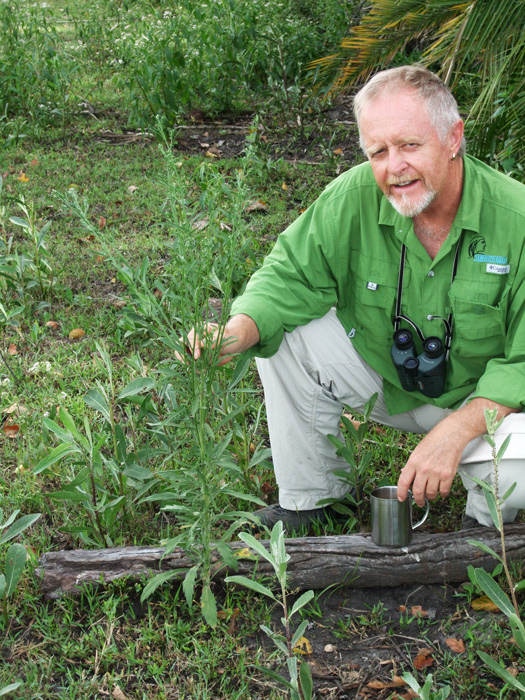We even have Fleabane and feathertop Rhodgrass grass on safari! Is there no escape?
It is always interesting, for me at least, to have a close look at the vegetation when travelling, both around Australia and overseas. Guess it is my love of nature and the environment, plus living life as a scientist .
Last month I was working in northern South Africa for two weeks, then across to Botswana for two weeks of Safari. This was our first time doing Safari and I will have to admit it was fantastic. Botswana has tourism down to a fine art and I highly recommend it as a safe and great destination. However I digress. Area of Botswana where we "safaried".
Area of Botswana where we "safaried".
Between observing a fantastic variety African wildlife in their natural habitat I observed some very familiar plants. Both Australia and southern Africa have been busy exchanging native species that then become weeds in their adopted home.
The first was feathertop Rhodes grass (Chloris virgata) at Nxai Pan, which is becoming a major weed in northern New South Wales and Queensland. This was a minor part of the lush vegetation which would soon dry off and be eaten down to dust by the vast numbers of grazers who traverse the landscape. It is interesting to note that one of its many common names in southern Africa is ‘Old land grass’, and it tend s to be found on heavily cro Chloris virgata at Nxai Pan.pped areas.
Chloris virgata at Nxai Pan.pped areas.
 Some of the grazers at Nxai Pan.Next was a species of fleabane out in the wilds of the Okavango Delta. The area with the fleabane was soon to go underwater with the coming annual flood. The plants looked like either Tall fleabane or Canadian fleabane, however the University of Pretoria’s Plant Science Herbarium lists 12 species. I know enough about plant taxonomy to know when I am beaten. Going down to species should often be left to the experts, and let them argue among themselves.
Some of the grazers at Nxai Pan.Next was a species of fleabane out in the wilds of the Okavango Delta. The area with the fleabane was soon to go underwater with the coming annual flood. The plants looked like either Tall fleabane or Canadian fleabane, however the University of Pretoria’s Plant Science Herbarium lists 12 species. I know enough about plant taxonomy to know when I am beaten. Going down to species should often be left to the experts, and let them argue among themselves.
 Fleabane waiting for the Delta flood.
Fleabane waiting for the Delta flood.
Flaxleaf fleabane is also major problem in horticulture in South Africa’s Western Cape, with populations resistant to both glyphosate and paraquat. So it isn’t just us having trouble with this species.
